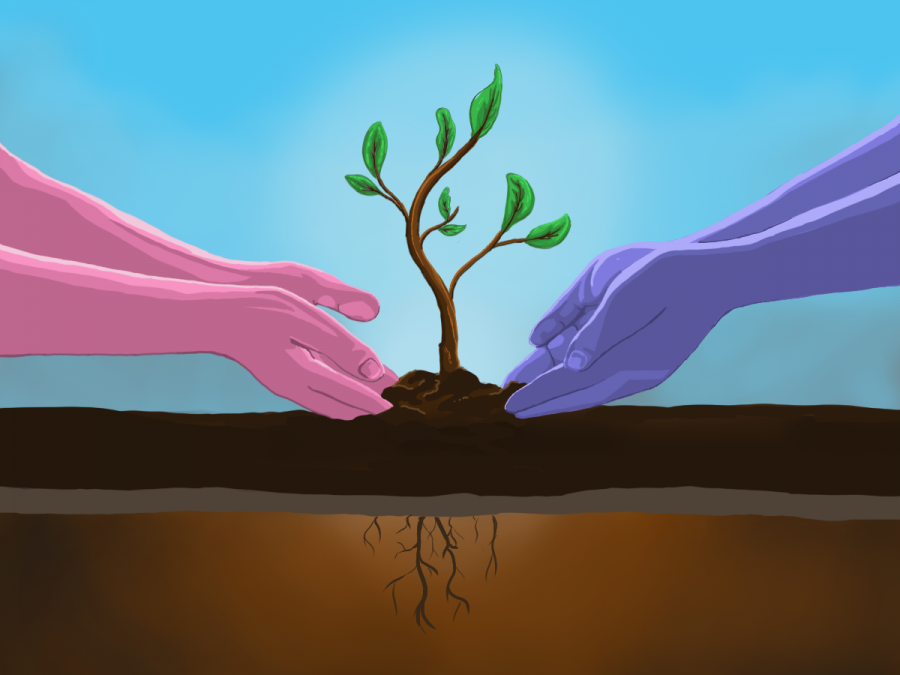Let students claim credit for community service
March 29, 2021
UT campus sits in the heart of one of the biggest cities in the United States. Austin, as a large metropolitan area, faces many challenges. Each day, sizable sects of residents experience homelessness, poverty and food scarcity. This presents a great need for community outreach.
However, many students remain entrapped in the bubble of University life.
In order to foster a campus culture of service and motivate students to action, UT should allow students to claim extracurricular credit hours for community service involvement.
Deven Patel, president of UT Habitat for Humanity, stressed the need for the University to cultivate an environment that truly helps the student body live up to its core values.
“If we want people going on to do really big, awesome things for their communities when they graduate, those are habits and practices that need to happen in college,” said Patel, a biology and religious studies senior. “I think as a university, the focus should be on getting students out of the bubble.”
One of the major factors trapping students in the campus bubble is the inability to find adequate time to venture beyond its confines. Students find it hard to maintain a proper balance between the commitments made to their academic and career pursuits as well as their idealized commitments to the community.
A University policy change that allows students to make community service part of their academics would go a long way toward helping them balance their responsibilities. Students could blend the demands of school and life with service opportunities.
“If you are a student with a full class schedule, first-generation, working to put yourself through college, it is hard to be civically engaged,” Patel said. “I think a way for UT to ease that burden by really incentivizing and rewarding students, and not making it a cost but a privilege to go volunteer, would be huge.”
Community service provides a host of benefits. First, it expands learning beyond the classroom. Instead of learning about society in a static environment, students that serve are able to understand the world in dynamic terms.
It not only shapes a genuine connection between the community at large and the University, it also puts an emphasis on civic engagement beyond the usual focus on voting.
“If we are pushing legislation for more affordable housing that gives us awesome bonds to build more affordable homes, let’s do that, and go be the people that help provide those affordable homes,” Patel said.
When asked about the logistics of claiming course credit for community service, J.B. Bird, director of media relations and newsroom, said in an email that UT wouldn’t be able to comment on this topic until after this column was published because the idea is still hypothetical.
The University should not shy away from this idea due to mere logistical concerns. This program can be structured in a manner similar to the internship courses offered and can even be required by colleges within the University. These programs, while varying slightly from each other, follow the same general formula.
However, unlike the internship courses, the focus will not be on students gaining experiences related to their particular major or career aspirations. Instead, it will focus on students gaining life experiences through passionate service.
For the University of Texas to live up to its motto, changing the world must truly start here. If students are allowed to claim credit hours for community service, it would go a long way toward reaching this bold goal.
Littleton is a government junior from Waco, Texas.



